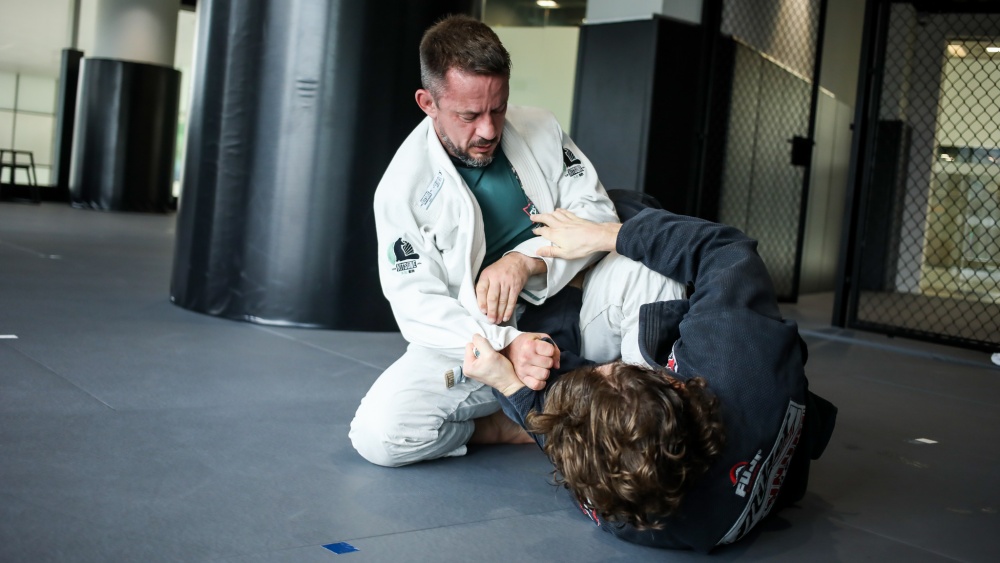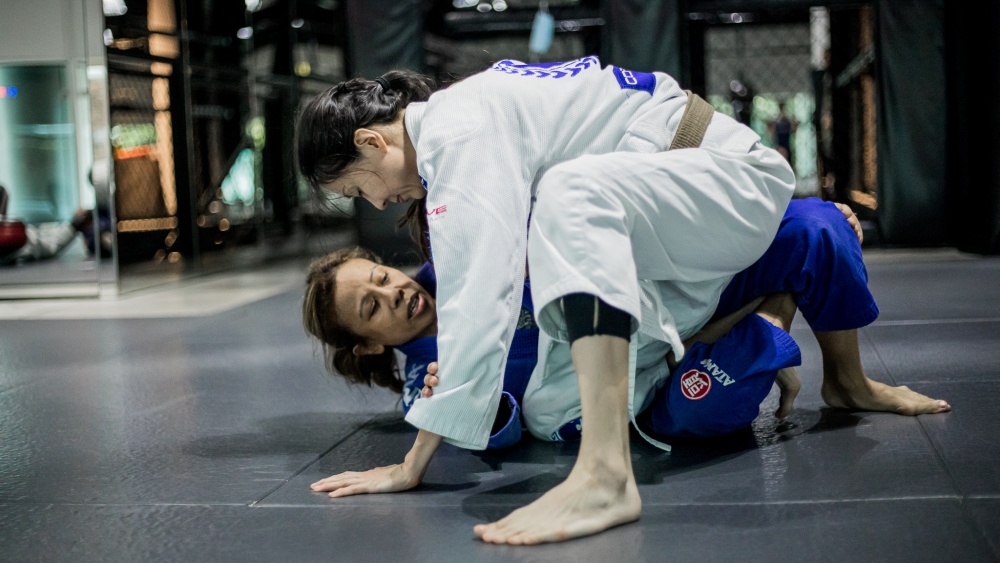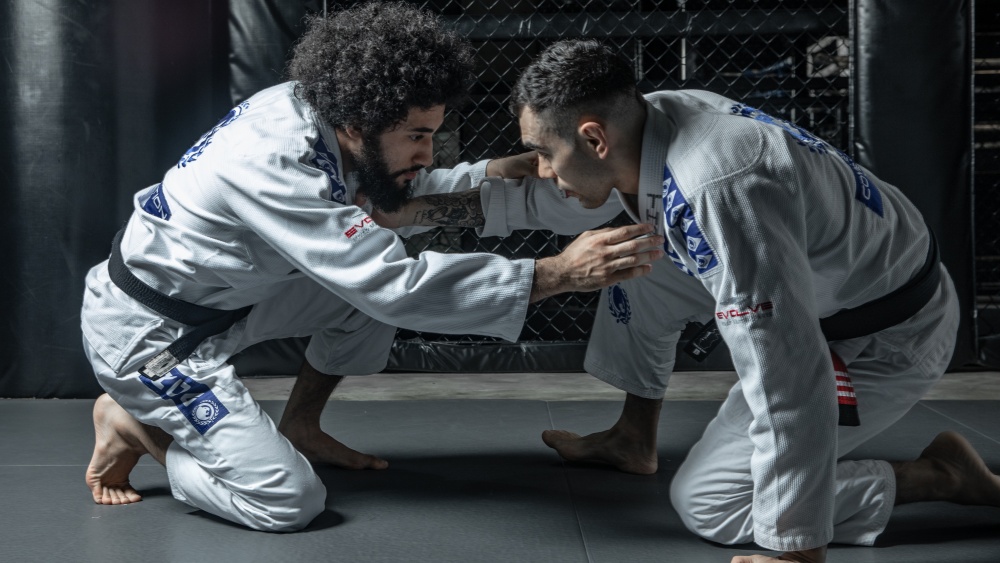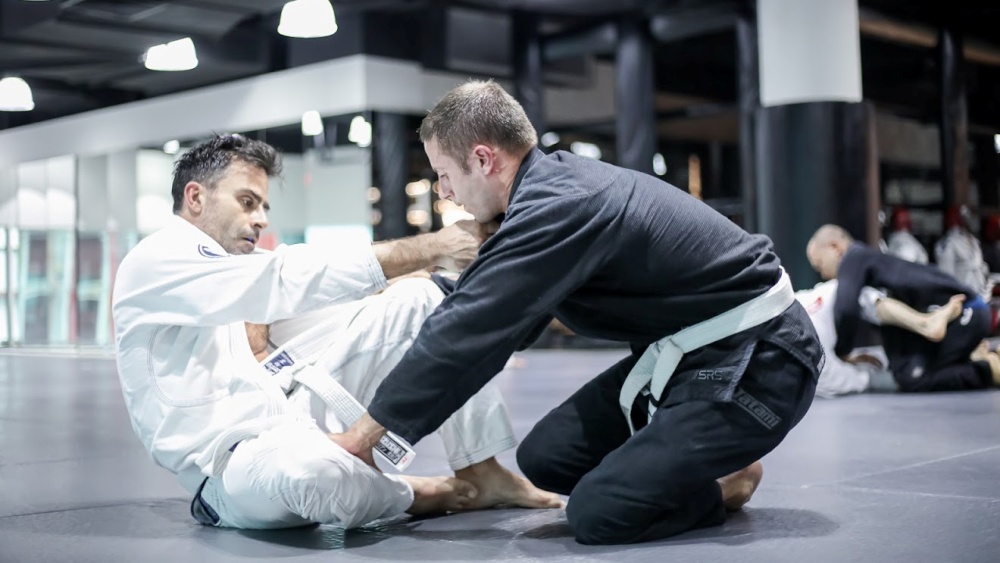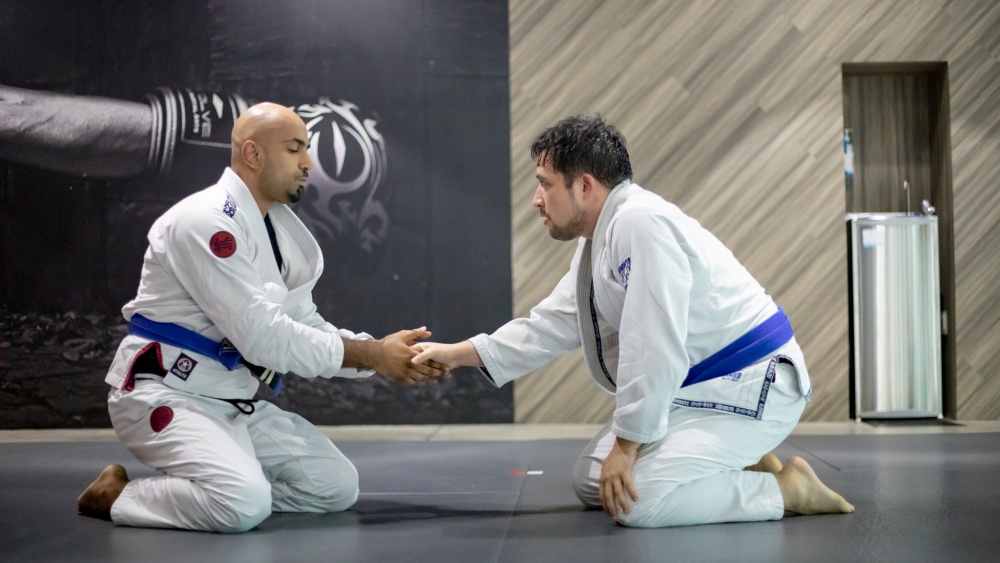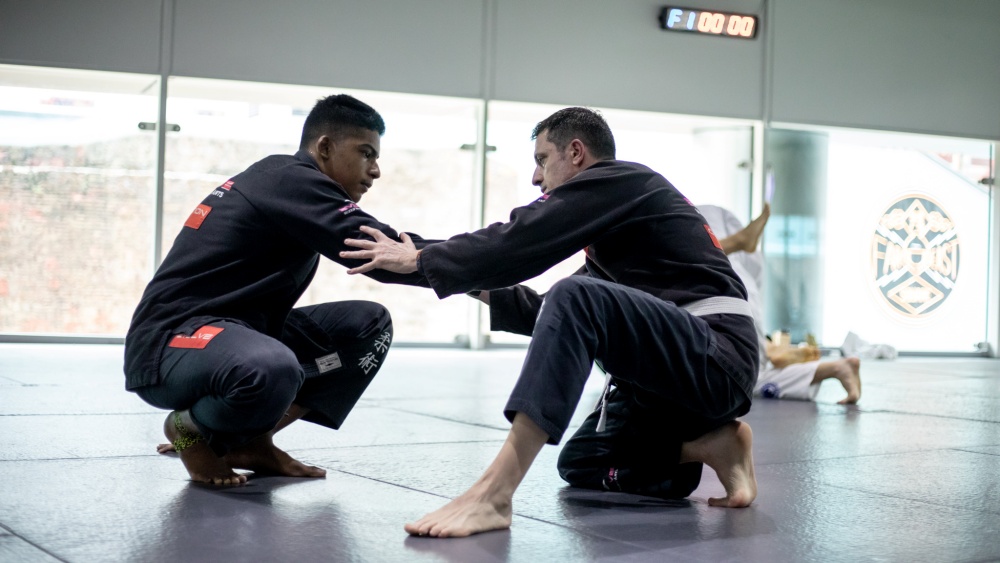Guest post by Evolve MMA, Asia’s premier championship brand for martial arts. It has the most number of World Champions on the planet. Named as the #1 ranked martial arts organization in Asia by CNN, Yahoo! Sports, FOX Sports, Evolve MMA is the top rated BJJ gym in Singapore.
Brazilian Jiu-Jitsu is one of the most rewarding martial arts you could ever train. Also known as the “gentle art,” BJJ is arguably the most effective combat style for self-defense scenarios. The arguments that favor this view include the fact most self-defense fights often end up on the grappling positions and the dominance BJJ fighters like Royce Gracie enjoyed during the early days of mixed martial arts tournaments.
One of the benefits grappling styles like BJJ have over combat styles is being able to train at close to 100 percent. People who train striking-based martial arts like Karate typically do not go all out during their sparring sessions.
BJJ practitioners can go 100 percent while rolling while keeping themselves and their training partners safe. This allows BJJ fighters to build up practical combat experience in a shorter amount of time. BJJ fighters used to executing their moves on opponents who are resisting them 100 percent allow them to perform well in self-defense scenarios and competitions.
Mastering BJJ Starts With The Fundamentals
There are countless moves used in BJJ, and it can take decades for you to master most of them. Being great at Brazilian Jiu-Jitsu isn’t about how many techniques you know – it’s about how sound your fundamentals and grappling strategy are. It isn’t that uncommon to see a lower belt defeat a higher-ranked training partner when rolling or in competitions.
Mastering BJJ starts with you mastering all the fundamentals. The fundamentals are what put you in positions to defend against submissions, transitions, and sweeps. With an excellent understanding of the fundamentals, you can put yourself in positions where you are able to attack your opponent with submissions effectively.
Let’s take a look at some fundamentals you should focus on when you first start training to take your BJJ game to the next level:
1) Keep Your Elbows Close To Your Body
Keeping your elbows tight and close to your body is one of those little details many people overlook when they first start training. Doing so makes it significantly more challenging for your opponent to attack your arms with armbars, kimura, and americanas.
Keeping your elbows close to your body also gives you more strength to push off your opponent when creating space. The more you observe this little rule, the harder it will be for your opponents to engage you in a submission.
2) Stay On Your Sides In Bottom Positions
Here’s another little detail that goes over many people’s heads when they first start training. This rule is simple; never voluntarily lay flat on your back when you are on the bottom. It makes it easier for your opponent to keep you pinned down and attack with submissions.
Instead of laying flat on your back, pick a side and lay on it. If your opponent is trying to advance positions, pick the side that is facing them.
3) Conserve Your Energy
Wasting energy when rolling makes your training sessions less effective. For starters, you’re more likely to lose the rolling session if your opponent is intelligent about their energy use. Also, your techniques won’t be as sharp since your cognitive function is diminished when you’re fatigued. Instead of fine-tuning the techniques you already know, you end up building bad habits instead.
4) Training Consistently
The more consistently you train, the easier it is to put everything you learn together. Training inconsistently prevents you from enjoying the physical and mental benefits of BJJ, and you progress at a much slower rate. You should aim to train at least two times weekly to progress at a healthy pace. If you plan to compete in BJJ/MMA competitions or simply want to improve as fast as possible, aim to train four to five times a week.
Training BJJ gives you a full-body cardiovascular workout. It builds your core strength and improves your endurance. Just as is the case with any other fitness program, you need to train consistently to reap these benefits.
5) Keep Your Ego In Check
Learning BJJ isn’t about being the toughest person in the room. People with huge egos often do not last long in the dojo since mastering BJJ requires a healthy dose of humility. Regardless of how strong or athletic you are, you will be tapping out a lot when you first start training.
You might end up taking your many defeats personally if you can’t keep your ego in check. You might find yourself avoiding certain training partners simply because you don’t feel like getting tapped out a bunch of times. That’s the wrong approach to learning BJJ.
Would you even want to train at a gym if you could beat all of their more advanced students as a white belt? Don’t take your losses at the gym personally. Take it as proof of how effective the techniques your instructors are passing down to you are. Keep at it, and your training partners won’t be able to tap you out so easily as your arsenal of techniques grows. You might even start catching them in submissions.
6) Focus On Learning, Not Winning When Sparring
Rolling, as sparring is called in BJJ, isn’t meant for proving how much better you are than your training partners. We roll to improve our techniques. That’s the primary goal. Focusing on emerging victorious will slow down your progression.
For example, if you have a hard time escaping from the bottom half guard position, you should spend lots of time working from that position during your sparring sessions. Most of your training partners won’t mind starting from advantageous positions, and you get to work on your weaknesses. You’re more likely to lose the training battle since you started from an unfavorable position, but you’ll fix your weakness a lot sooner.
That’s the key to becoming a BJJ ace – using your sparring sessions to work on weaknesses and techniques instead of worrying about who ends up tapping who out.
The post Important Fundamentals You Should Focus On When You First Start Learning BJJ appeared first on Bjj Eastern Europe.

